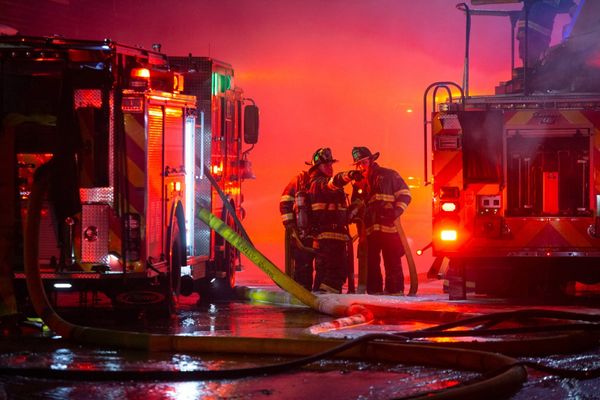It's back to school in Queensland and the state is still dealing with a peak in COVID-19 cases.
Research is only just starting to explore the long-term impacts COVID-19 could have on children's development.
So, what does a worldwide pandemic mean to a kid?
Even as an adult, it has been hard to adapt to the disruption it's caused.
If children thrive from routine and predictability, what does COVID-19 mean for them?
Who better to ask than kids
Aria, Tate and Gabriel have all grown up in regional north Queensland.
Aria, 9, and Gabriel, 10, can both remember a time they didn't have to follow so many rules.
However, Tate, 7, said he can't really remember a time before COVID.
"Sometimes when I go out, it's like I don't know if I'm going to catch it," Aria said.
"At a lot of shops, you have to stand on the 1.5 [metre] distance marks.
Meanwhile, Gabriel said he doesn't know a lot about COVID-19, but he knows it can kill people.
Tate said he's a bit scared school will be different this year and seeing people with masks on is "pretty weird."
Parenting in the pandemic
Professor Matthew Sanders is the founder of the Triple P positive parenting program and a new podcast, Parenting in a Pandemic.
He said COVID-19 has led to a significant increase in mental health problems in children.
"If kids see their mums and dads doing their best and trying to have reasonable control and management of their everyday life…children are still likely to be growing up in an environment where they feel their world is fundamentally safe."
Simone Collier from the Queensland chapter of the Australian Association of Special Education likens parenting in the pandemic to emergency protocol on an aeroplane.
You must put your own oxygen mask on first, before you can help anyone else.
Risk factors
Ms Collier said when a child is experiencing two or more "risk factors" in their lives, that child is four times more likely to develop a mental health disorder.
She referred to risk factors as a range of experiences such as social isolation or domestic violence.
"If they have four or more of those risk factors, they're ten times more likely [to develop mental health issues]," she said.
"When we have those layers already present in a child's life and we suddenly add in elements of the pandemic ... it's accumulated risk."
Joe Tucci, chief executive of the Australian Childhood Foundation, has similar concerns.
"Children don't learn well when there's a threat around them or disruption or a sense that life is not predictable," he said.
"I think children are experiencing a lot more uncertainty and that destabilises their development.
'A lasting legacy'
In August last year, the Australian Childhood Foundation released a report based on responses from a sample group of parents nationwide.
The report, A Lasting Legacy – The impact of COVID-19 on Children and Parents, found one in five parents are concerned about their children's future social development.
Dr Tucci said COVID-19 is a "collective trauma."
"We've generally applied that to war or to famine…situations where the environments changed so dramatically that it's had an impact on a whole community," he said.
"Children who are in those communities need special attention."
Other factors - mask-wearing
The Australian Association of Special Education's Simone Collier said for children where a lot of communication is conveyed via the face, wearing masks is problematic.
"That can increase anxiety."
She said it was extremely disrupting for children who have a learning difficulty or hearing disorder.
"A lot of children who have sensory processing disorders and don't like the feel of the mask on their face ... that can actually create further anxiety," she said.
North Queensland speech pathologist Linda Sandes said face masks impacted kids more than we know.
"I do think it's limiting their chances to learn from other people and social cues," she said.
"Little kids ... certainly learn to read facial expressions to understand the nuances of language.
Social distancing
Ms Collier also addressed a “hesitancy in schools around touch.”
“We are not going to be able to develop any relational bonds with children when we're unable to give that kind touch.”
If there’s one thing all experts can agree on ... it’s the fact that kids are incredibly resilient.
Advice from the experts
From a psychologist to speech therapist the advice is this: taking care of yourself as a parent is vital to making sure you are in the best position to support your child.
Professor Sanders says the more certainty you have around a game plan as you're returning to school, the easier it will be.
And it can be as simple as talking to your kids.
"A lot of people don't tend to have meals together anymore but that's such a great way to keep in touch with your kids and give them all those language models," Ms Sandes said.
Ms Collier said in Queensland, parents can reach out to other services such as intensive family support services.
Because while the pandemic will come to an end, the experience will be felt for a long time.







